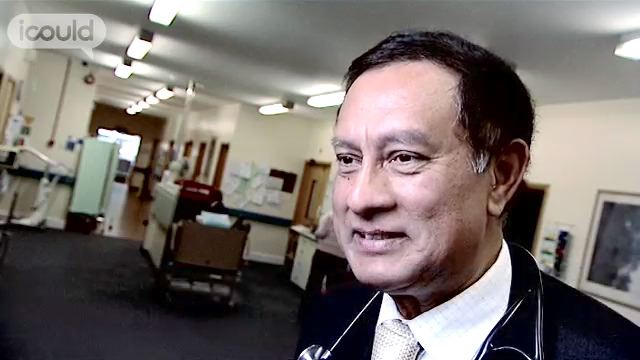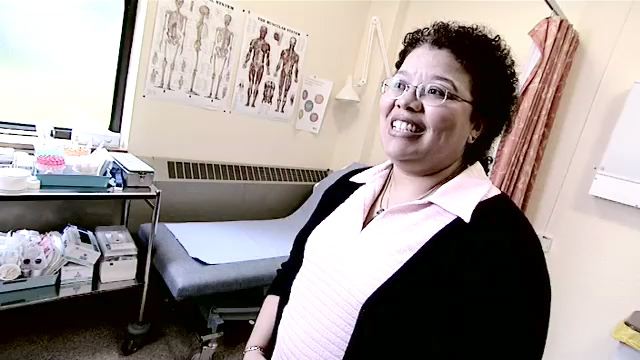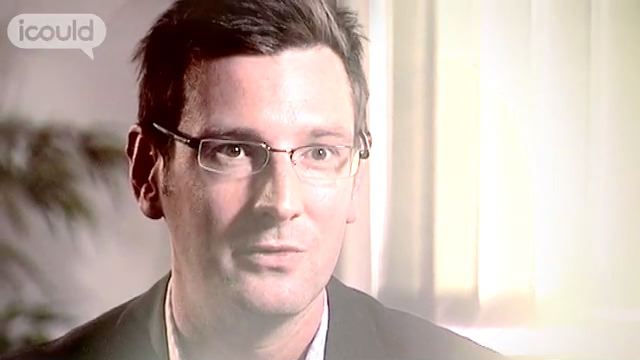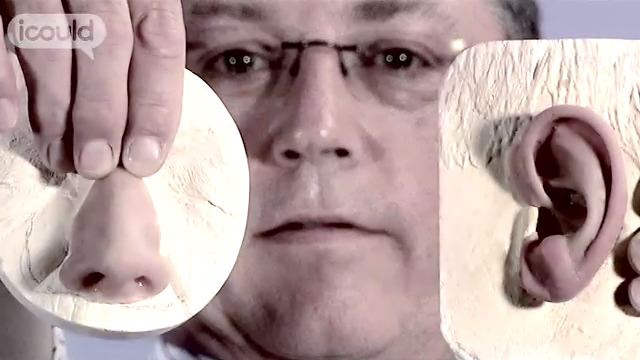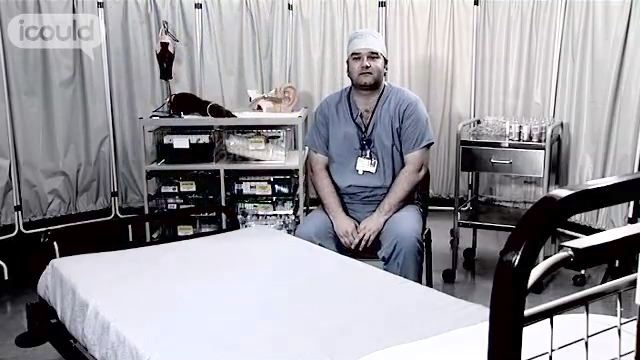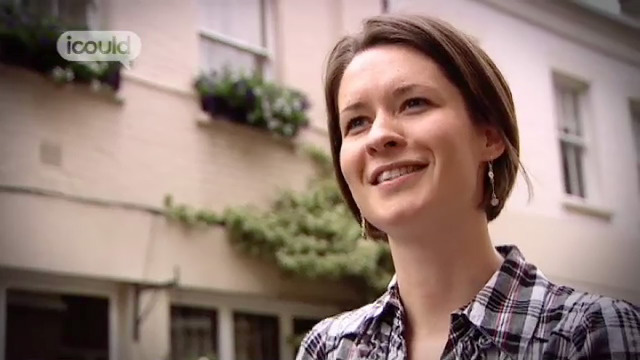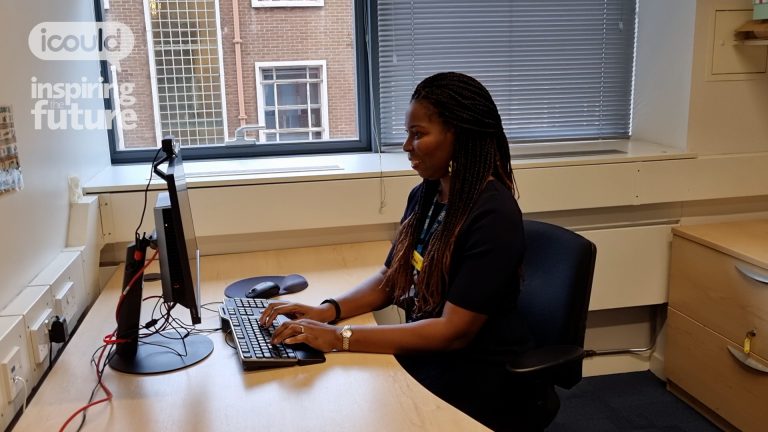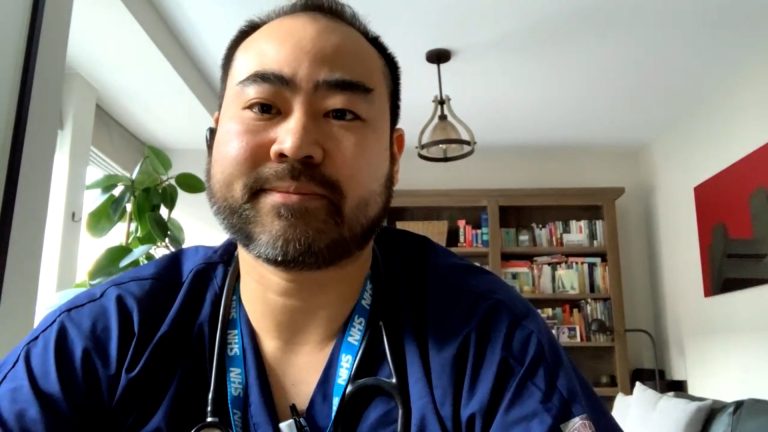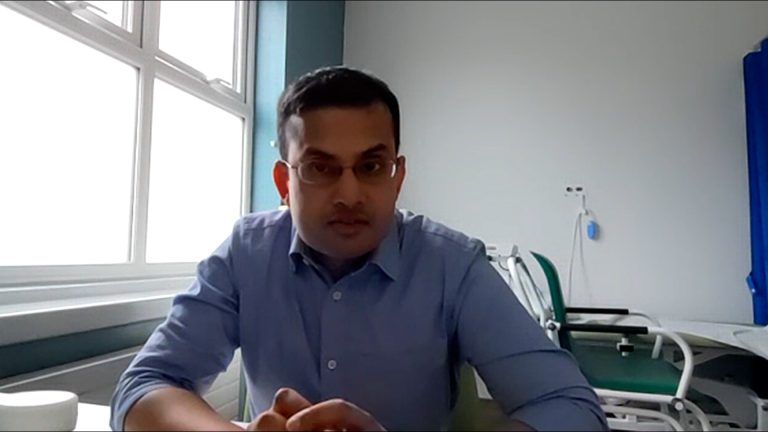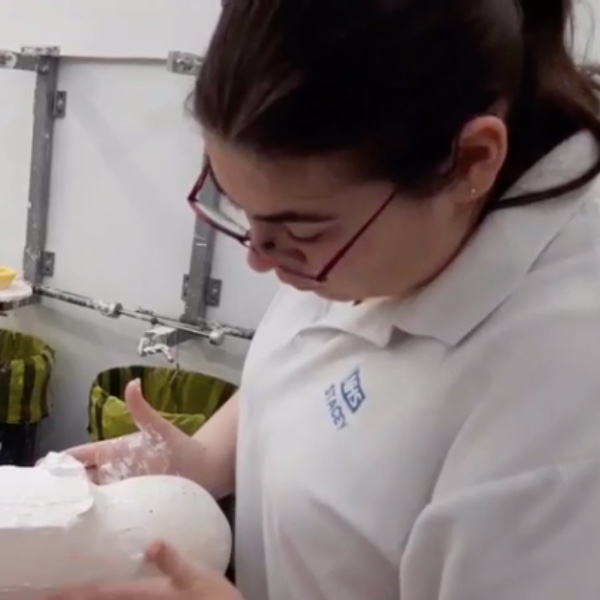Explore: Healthcare
Consultant Anaesthetist
NHS
info Issues viewing the video?
icould and Inspiring the Future
Iby
Consultant Anaesthetist
UCLH NHS Foundation Trust
| Time Code | Audio |
| 00:00:07 | My name is Iby Adedugbe and I’m a consultant anaesthetist and I work in the NHS. So what does an anaesthetist do? We look after patients whilst they’re having surgery, that’s the core of our job. But our job also involves looking after patients who have chronic pain issues, looking after women around the time of labour or having surgery for delivery of their babies. We look after patients when they come in as an emergency, in terms of helping to resuscitate patients and help them get better. We look after patients on intensive care units. So these are some of the key things we do. |
| EDUCATION | |
| 00:00:44 | I decided I wanted to become a doctor at the age of 7 and then I went on, I formed my A Level choices to do A Level Chemistry, Biology, Maths and Further Maths and then after my A Levels, I went to medical school. |
| SKILLS | |
| 00:01:00 | In terms of being able to become a good anaesthetist, you have to have good clinical skills and what are those? So having good practical skills and the ability to be able to put lines in, being able to put a tube in someone’s mouth if they need to go on the ventilator. But these are all skills you learn during your training, but the key things are actually social skills. So you need to be able to connect with people from any walk of life and be able to reassure people and give them confidence that you will look after them whilst they’re asleep and make sure that everything goes well and wake them up afterwards and that pain control will be well managed. |
| 00:01:39 | You also need good communication skills to be able to discuss with other members of the team, be a good team leader, a good team member and being able to comfort family who have relatives on intensive care units and reassuring them and keeping them up to date. So these are some of the key skills, as well as applying your medical knowledge to looking after patients. |
| CAREER PATH | |
| 00:02:06 | I really wanted to do intensive care medicine and that was what led me to do anaesthesia. Having said that, I don’t do much intensive care now because I realised as personality wise I struggled with the emotional component of the intensive care unit. As much as you get trained to look after yourself and detach yourself from all the trauma of all the things that you see, I found that over time I struggled with these, so I decided that intensive care wasn’t actually for me and I continues with my anaesthetic career. |
| ADVICE | |
| 00:02:45 | Make sure you find people who are already on the career path that you are thinking about and find mentors in those positions because they will let you know about non-traditional opportunities that are not readily available. Those are the things that, you know, are not necessarily advertised and these are things that may make all the difference in terms of applications for different things in the future. |
| 00:03:10 | END OF TRANSCRIPTION |
“As much as you get trained to look after yourself and detach yourself from all the trauma of all the things that you see, I found that over time I struggled with these, so I decided that intensive care wasn’t actually for me and I continued with my anaesthetic career.” Iby wanted to be a doctor since she was seven and her interest in intensive care led her to become an anaesthetist.
More information about Generalist medical practitioners
Data powered by LMI For All
£60,320
average salary
The UK average salary is £29,813
42
average weekly hoursThere are 37.5 hours in the average working week
45%
male
55%
female
The UK workforce is 47% female and 53% male
Future employment
Future employment
Description
Generalist medical practitioners diagnose mental and physical injuries, disorders and diseases, prescribe and give treatment, recommend preventative action, and conduct medical education and research activities. They work in hospitals or in general practice and, where necessary, refer the patient to a specialist.
Qualifications
Entrants require a university degree from a medical school recognised by the General Medical Council followed by two years of pre-registration training as a house officer. Some medical schools operate graduate entry schemes. Once the pre-registration period as house officer is completed, further postgraduate training in a general practice training programme is completed
Tasks
- Examines patient, arranges for any necessary x-rays or other tests and interprets results
- Diagnoses condition and prescribes and/or administers appropriate treatment
- Administers medical tests and inoculations against communicable diseases
- Supervises patient’s progress and advises on diet, exercise and other preventative action
- Refers patient to specialist where necessary and liaises with specialist
- Prepares and delivers lectures, undertakes research, and conducts and participates in clinical trials
- Supervises the implementation of care and treatment plans by other healthcare providers
Employment by region
Top 10 industries for this job
Health
144742
Public admin. & defence
10096
Education
6012
Services to buildings
4578
Membership organisations
3953
Real estate
3373
Office admin.
3171
Social work
2052
Sport & recreation
1840
Sale of motor vehicles
1743
Employment status
Related career stories
⇦
⇨
